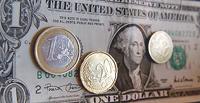The Russian Gas monopoly Gazprom intends to take action in order to force The Ukraine to pay for gas and stop the country from exporting it to Europe.
Published:
7 July 2000 y., Friday
Russian deputy Prime Minister Viktor Khristenko has reported that gas deals between the two CIS members are to be radically revised and a new payment procedure is to be introduced soon. By October 1st this year, the Russian government will have prepared a set of documents regulating gas transactions between the two states. Judging from the published excerpts from those documents, Russia will no longer tolerate The Ukraine’s non-payment and gas theft.
Firstly, to stop gas deliveries through The Ukraine would mean loosing lucrative contracts with Germany. Secondly, Kiev has cunningly managed to use Gazprom’s and the Russian authorities’ interests to suit its own ends, by promising the Kremlin that The Ukraine could delay its bid to enter NATO. The Russian authorities willingly bought these promises.
Politics aside, there were also economic reasons for Russia’s lenience towards The Ukraine. Gazprom has always acted as a private legal entity, although the Russian government holds a 41% stake in the gas giant. However, Gazprom continuously delayed tax payments, omitted dividends, and state representatives were given a disproportionately low share of the seats on Gazprom’s board of directors.
The government therefore did not take great pains to defend Gazprom’s interests.
Russia also insists that The Ukraine should stop illicit gas deliveries to Europe. The problem is that The Ukraine purchases Russian gas on favorable terms, regularly delays payments to Gazprom and then resells gas at high European prices, thus disrupting the stability of European gas supplies.
Šaltinis:
Internet
Copying, publishing, announcing any information from the News.lt portal without written permission of News.lt editorial office is prohibited.
The most popular articles
 The European Commission launched "The ocean of tomorrow " call for research proposals. Oceans cover about 70% of the Earth's surface, but human activity is increasing environmental pressure on them.
more »
The European Commission launched "The ocean of tomorrow " call for research proposals. Oceans cover about 70% of the Earth's surface, but human activity is increasing environmental pressure on them.
more »
 The EBRD is stepping up its support to the real economy in Georgia with new funds for on-lending to local businesses.
more »
The EBRD is stepping up its support to the real economy in Georgia with new funds for on-lending to local businesses.
more »
 Lithuania’s Ambassador to Germany and Special Representative for EU External Relations in the German Foreign Office discussed the situation regarding the decision of private credit insurance company in Germany Euler Hermes to apply the rating of a maximum risk country for Lithuania.
more »
Lithuania’s Ambassador to Germany and Special Representative for EU External Relations in the German Foreign Office discussed the situation regarding the decision of private credit insurance company in Germany Euler Hermes to apply the rating of a maximum risk country for Lithuania.
more »
 Peter Reiniger Business Group Director for Central Europe and the Western Balkans from the European Bank for Reconstruction and Development visited Latvia to sign subordinated loan agreement with Parex banka.
more »
Peter Reiniger Business Group Director for Central Europe and the Western Balkans from the European Bank for Reconstruction and Development visited Latvia to sign subordinated loan agreement with Parex banka.
more »
 The European Commission has approved 16 programmes in 12 Member States to provide information on and to promote agricultural products in the European Union.
more »
The European Commission has approved 16 programmes in 12 Member States to provide information on and to promote agricultural products in the European Union.
more »
 New measures to help farmers through recession as milk prices tumble.
more »
New measures to help farmers through recession as milk prices tumble.
more »
 Federal Reserve Chairman Ben Bernanke said the outlook for the long-suffering U.S. economy appears to be improving.
more »
Federal Reserve Chairman Ben Bernanke said the outlook for the long-suffering U.S. economy appears to be improving.
more »
 The Swiss Government and the EBRD are providing €11.8 million to improve the supply of water to some 1 million people living in Bishkek, the capital of the Kyrgyz Republic.
more »
The Swiss Government and the EBRD are providing €11.8 million to improve the supply of water to some 1 million people living in Bishkek, the capital of the Kyrgyz Republic.
more »
 The Neighbourhood Investment Facility (NIF), a key instrument of the intensified European Neighbourhood Policy (ENP), will benefit in 2009 from a €70 million contribution by the European Commission.
more »
The Neighbourhood Investment Facility (NIF), a key instrument of the intensified European Neighbourhood Policy (ENP), will benefit in 2009 from a €70 million contribution by the European Commission.
more »
 In response to the impact of the global crisis on the Romanian construction sector, the EBRD is supporting Lafarge Ciment (Romania) S.A. with a €20 million loan in Romanian lei to finance the company’s operations and to support its working capital requirements.
more »
In response to the impact of the global crisis on the Romanian construction sector, the EBRD is supporting Lafarge Ciment (Romania) S.A. with a €20 million loan in Romanian lei to finance the company’s operations and to support its working capital requirements.
more »